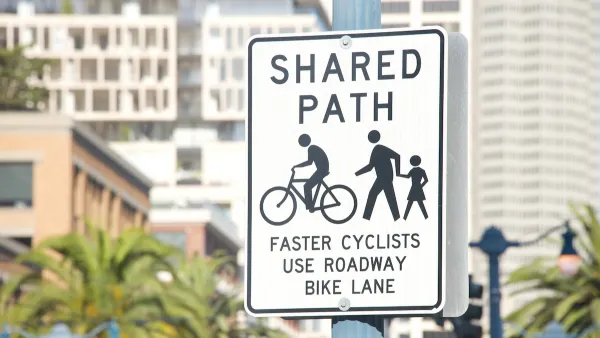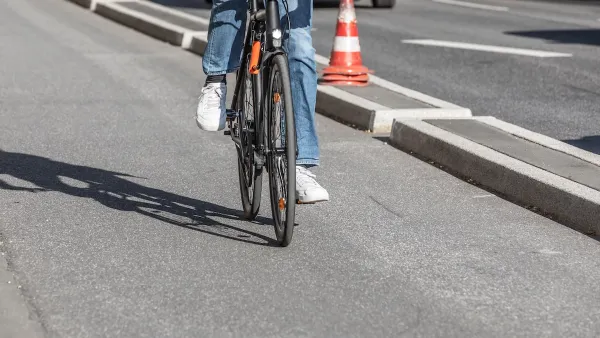The city will now require its department of transportation to consider bike and pedestrian facilities when planning new projects or improvements.

The Cincinnati City Council approved a Complete Streets policy for the city, signaling a “historic shift” in how the city designs its roads and codifying the imperative to consider pedestrians and cyclists. As Chris Wetterich reports in the Business Journals, the policy requires the city’s transportation department to “consider how to add new street features when they rehabilitate a street, add new traffic lights or other safety measures or make improvements for pedestrian safety.”
According to Councilman Mark Jeffreys, “For 75 plus years, we designed streets and thought first (about) cars – how fast can we get cars through? Speed was more important. This flips it. We should be designing streets for people.”
For each street it changes, the city’s transportation department will have to issue a report showing how many miles of new bike facilities it has installed, the number of linear feet of new, repaired or widened sidewalks, traffic calming measures, safety improvements, comfort enhancements and the number of projects in each neighborhood.
Earlier this year, Cincinnati ended parking requirements in the West End neighborhood, citing complaints from local businesses that favored removing parking to make room for other amenities.
FULL STORY: Cincinnati plans to make room for more bikes, pedestrians, transit on streets

Analysis: Cybertruck Fatality Rate Far Exceeds That of Ford Pinto
The Tesla Cybertruck was recalled seven times last year.

National Parks Layoffs Will Cause Communities to Lose Billions
Thousands of essential park workers were laid off this week, just before the busy spring break season.

Retro-silient?: America’s First “Eco-burb,” The Woodlands Turns 50
A master-planned community north of Houston offers lessons on green infrastructure and resilient design, but falls short of its founder’s lofty affordability and walkability goals.

Test News Post 1
This is a summary

Analysis: Cybertruck Fatality Rate Far Exceeds That of Ford Pinto
The Tesla Cybertruck was recalled seven times last year.

Test News Headline 46
Test for the image on the front page.
Urban Design for Planners 1: Software Tools
This six-course series explores essential urban design concepts using open source software and equips planners with the tools they need to participate fully in the urban design process.
Planning for Universal Design
Learn the tools for implementing Universal Design in planning regulations.
EMC Planning Group, Inc.
Planetizen
Planetizen
Mpact (formerly Rail~Volution)
Great Falls Development Authority, Inc.
HUDs Office of Policy Development and Research
NYU Wagner Graduate School of Public Service




























